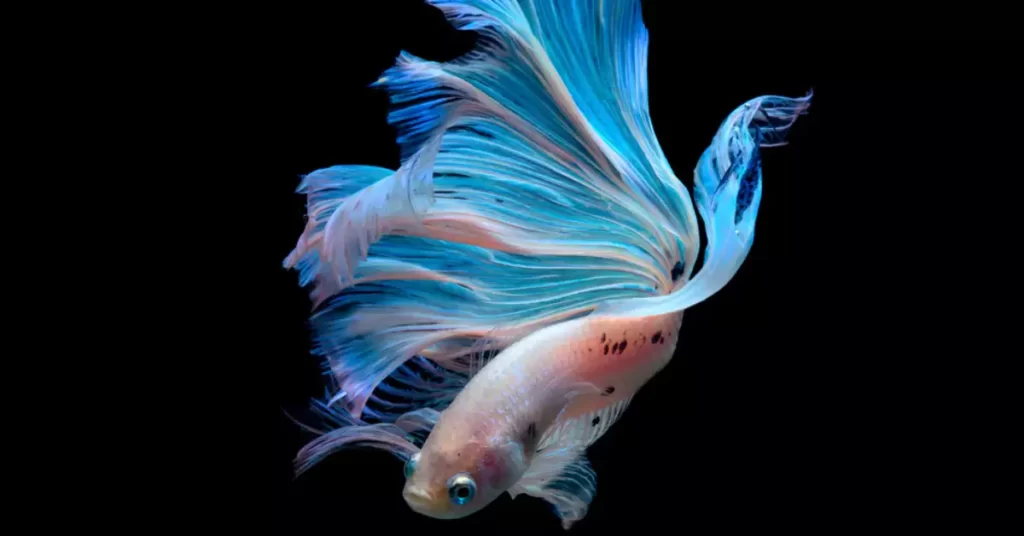Betta fish are known for their striking colors and elegant fins, making them popular pets for aquarists of all skill levels.
Proper nutrition is crucial to maintain their health and beauty. In this article, we’ll explore whether betta fish can eat mealworms, a common food source for many animals, and what other alternatives are available for feeding your betta fish.
Understanding Betta Fish Diet
Betta fish are carnivorous by nature and primarily consume insects and small crustaceans in the wild.
A balanced diet should include a variety of protein-rich foods that closely mimic their natural diet.
Providing a proper diet ensures that your betta fish remains healthy and vibrant, with a strong immune system and reduced risk of diseases.
What are Mealworms?
Mealworms are the larval stage of the mealworm beetle, a species of darkling beetle.
They are a popular food source for many animals, such as birds, reptiles, and small mammals.
Mealworms are high in protein, fat, and other essential nutrients, making them an attractive option for feeding pets.
Can Betta Fish Eat Mealworms?
The short answer is yes, betta fish can eat mealworms. However, mealworms are not a suitable staple food for betta fish.
They should only be fed as an occasional treat, if at all. Mealworms are terrestrial insects, and their exoskeleton is made of chitin, which can be difficult for betta fish to digest.
Additionally, mealworms lack some of the essential nutrients that betta fish require for optimal health.
Potential Risks of Feeding Mealworms to Betta Fish
Feeding mealworms to betta fish comes with several risks:
- Digestive Issues: The chitin exoskeleton of mealworms can cause digestive problems in betta fish, potentially leading to constipation, bloating, and even intestinal blockages.
- Nutritional Imbalance: Mealworms lack essential nutrients, such as taurine and certain vitamins, which are crucial for betta fish health.
- Overfeeding: Mealworms are high in fat and can lead to obesity if fed too often. Overfeeding can also lead to other health problems, such as swim bladder issues and fatty liver disease.

Alternative Food Options for Betta Fish
To ensure your betta fish receives a balanced diet, it’s essential to offer a variety of high-quality, protein-rich foods that closely mimic their natural diet. Here are some alternative food options for betta fish:
Live Foods
- Brine shrimp: These small crustaceans are an excellent source of protein and can be hatched at home or purchased from pet stores.
- Daphnia: Also known as water fleas, daphnia are small crustaceans that provide essential nutrients for betta fish.
- Bloodworms: These mosquito larvae are a popular betta fish food, offering high protein and essential amino acids.
- Wingless fruit flies: These small insects can be a great source of protein and entertainment, as bettas enjoy hunting them.
Frozen and Freeze-Dried Foods
- Frozen bloodworms, brine shrimp, and daphnia: These are widely available in pet stores and provide the same nutritional benefits as live foods without the risk of introducing parasites or pathogens.
- Freeze-dried foods: While not as nutritionally dense as live or frozen foods, freeze-dried options are convenient and can be a good supplement to a betta fish’s diet.
Pellets and Flakes
- Betta-specific pellets: These are specially formulated to meet the nutritional needs of betta fish and can be used as a staple food. Look for high-quality pellets with a high protein content and minimal filler ingredients.
- Flakes: While not as nutritionally dense as pellets, betta-specific flakes can be a supplemental food source for betta fish.
How to Properly Feed Your Betta Fish
- Feed small amounts: Betta fish have small stomachs, so feed them small amounts of food multiple times per day.
- Remove uneaten food: Prevent water contamination by removing any uneaten food after a few minutes.
- Soak freeze-dried foods: Rehydrate freeze-dried foods in a small amount of aquarium water before feeding to reduce the risk of digestive issues.
- Monitor your betta’s health: Keep an eye on your betta’s behavior and appearance to ensure they are receiving proper nutrition.
Signs of Poor Nutrition in Betta Fish
Poor nutrition can lead to various health issues in betta fish. Here are some signs to watch for:
- Lethargy: A lack of energy or reduced activity level may indicate nutritional deficiencies.
- Loss of color: A dull or fading coloration can be a sign of poor nutrition.
- Clamped fins: If your betta fish is holding its fins close to its body, it may be a sign of stress or illness related to nutrition.
- Weight loss: Sudden or drastic weight loss can indicate inadequate food intake or nutritional deficiencies.
FAQs
Can betta fish eat other types of worms besides mealworms?
Yes, betta fish can eat other types of worms, such as microforms and blackworms. However, these should also be fed in moderation and not as a staple food.
How often should I feed my betta fish?
Betta fish should be fed small amounts of food multiple times per day, with a total feeding time of 2-3 minutes.
Can I feed my betta fish vegetables or fruits?
While betta fish are primarily carnivorous, they can also benefit from small amounts of vegetables and fruits, such as blanched spinach, zucchini, and cucumber.
Conclusion
In conclusion, while betta fish can eat mealworms, they should not be fed as a staple food due to their potential risks and nutritional deficiencies.
A balanced diet should include a variety of high-quality protein sources, such as brine shrimp, bloodworms, and betta-specific pellets.
It’s essential to monitor your betta’s health and behavior to ensure they are receiving proper nutrition. By providing a diverse and balanced diet, you can help your betta fish live a healthy and vibrant life.